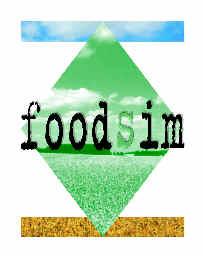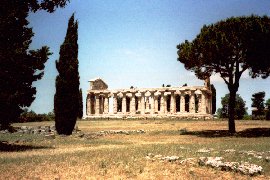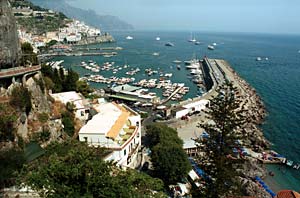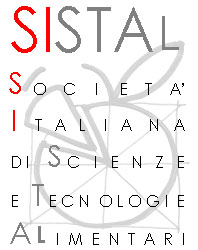
FOODSIM'2006
June 15-17, 2006, University of Naples Federico II, Naples, Italy
Conference Themes
Conference Themes (the preliminary programme can be viewed here)
The development and use of model simulation in risk analyses, food safety, fermentation, texture and flavour of food products. How simulation models can help to manufacture a consumer-friendly food product on specs with a shorter time-to-market.; The state-of-the-art in modelling of complex food properties. This translates itself into the use of models in process and plant control. Process control based on a set of product specs by application of neural networks, fuzzy logic, cost models and mechanistic models; traceability and logistics management. These aspects are covered by the following:
Tools and Methods of Modeling and Simulation Applied to Food and Bio-Industries
This track is concerned with the methodological aspects of simulation modeling covering Systems analysis, model specification and evaluation, sensitivity analysis, statistical models, metamodels, etc. Problems of software tools also will be addressed within this track. Contributions on key concepts related to the dynamic modeling of food industry systems are also welcome. Software development. User friendly interfacing; Web-enabled applications; Standardization and maintenance; Available (commercial) modelling tools. Neural Networks, Fuzzy Logic and Expert Systems.
SUBMIT YOUR PAPER FOR METHODS AND TOOLS HERE
Simulation in Automation Hardware
This track will cover simulating and modelling software sensors, parameters or state estimation, process control and optimization
SUBMIT YOUR PAPER FOR SIMULATION IN AUTOMATION HERE.
Simulation in Food Engineering and Processing
The objective of this research track is to assess the state of computer modeling and simulation in food processing and engineering. Of interest are computer modeling and simulation applications conducted with the objective of improving knowledge and understanding of physical phenomena, developing software sensors, optimizing systems, as well as issues in control, supervision, and failure analysis. Methods of simulation of food processes (static and dynamic), Tools for simulation, Knowledge driven models, Simplification of complex models (for control or real time simulation, for example), Neural networks (for modeling, control or computing), Fuzzy techniques (for simulation or control), Examples and applications, Optimization of the design of a unit operation or a process, Optimization of the operating conditions, Optimization of products (formulation) Real time simulation Indirect measurement, observation and estimation techniques (software sensors) Estimation of thermophysical properties by inverse techniques, Control, Supervision, Condition based monitoring, failure analysis.
SUBMIT YOUR PAPER FOR SIMULATION IN FOOD ENGINEERING AND PROCESSING HERE.
Simulation in Food Sciences and Biotechnology
The interactions of biological complexity with environmental parameters cannot be studied using conventional methods. Computer modeling and simulation methods offer imaginative possibilities for improving biokinetic studies, molecular investigations, bioprocess control, extraction yield or quality of final products, and risk assessment. Simulation methods and tools can be applied to the following areas: Simulation and molecular structure, Molecular structure prediction, Molecular interaction , Biomolecular engineering, Biotechnology, Responses modeling, Biokinetics modeling , Bioprocess control , Optimisation, Simulation and risk assessment, Predictive Microbiology, Growth and death modeling, Optimisation of food processing, Predictive microbiology and HACCP, Shelf-life prediction (Food, pharmaceutical product). Computational Fluid Dynamics, Heat and Mass Transfer.
SUBMIT YOUR PAPER FOR SIMULATION IN FOOD SCIENCES AND BIOTECHNOLOGY HERE
Simulation in Food Production Management and Economics
Traceability and Logistics Management: Firms in the food industry often face short delivery delays mandated by marketing requirements. Food products are also frequently perishable. Thus, firms in the industry need to react quickly within a flexible organization. One difficulty in rapid flexible response stems from the need to manage the ongoing production of raw material based on intermediate-term delivery schedules (for example, poultry farms schedule production based on future order forecasts available many months prior to the actual delivery time). This track is concerned with a variety of research efforts addressing intra-firm and inter-firm economic and management problems across food chains. Applications in many fields are welcome for presentation: production management, scheduling problems, operations management , logistics, Supply Chain Management, Efficient Consumer Response, micro economics models, industrial economics, econometrics, quality management , human resources management, marketing, category management, trade marketing, sales forecasting, strategy of the firm, project management, information systems management , production layout problems.
SUBMIT YOUR PAPER FOR SIMULATION IN FOOD PRODUCTION MANAGEMENT, ECONOMICS, TRACEABILITY AND LOGISTICS MANAGEMENT HERE
Simulation and Training
The specific topic of this research track is the use of simulation as a learning tool. This theme will include the presentation of innovative tools and contributions of user experiences in tutorial, didactical, and training programs. Applications are to be focused mainly in the fields of interest for bio-industries (for example, sciences, technology, and knowledge management, database for model development).
SUBMIT YOUR PAPER FOR SIMULATION, TRAINING AND DATABASE MODEL DEVELOPMENT HERE
 |
 |
 |



















